Advertisement
You may love to go for a swim on a hot summer’s day, and with great pool maintenance, you will be able to. Once you know how to maintain a pool, all you’ll need is your costume, goggles and fun pool equipment to enjoy a hot afternoon in the pool. Swimming pool maintenance means you’ll be able to enjoy your pool for years to come.
Regular swimming pool service will benefit your pool in the same way it benefits your car. By maintaining a pool you’ll always have sparkling water in warm weather.
Understanding pool care will enable you to prolong the life of your pool. This is why it is a good idea to explore what you need for swimming pool maintenance. When you have core essentials at hand you’ll be ready to solve any problems which arise.
What makes up a pool?
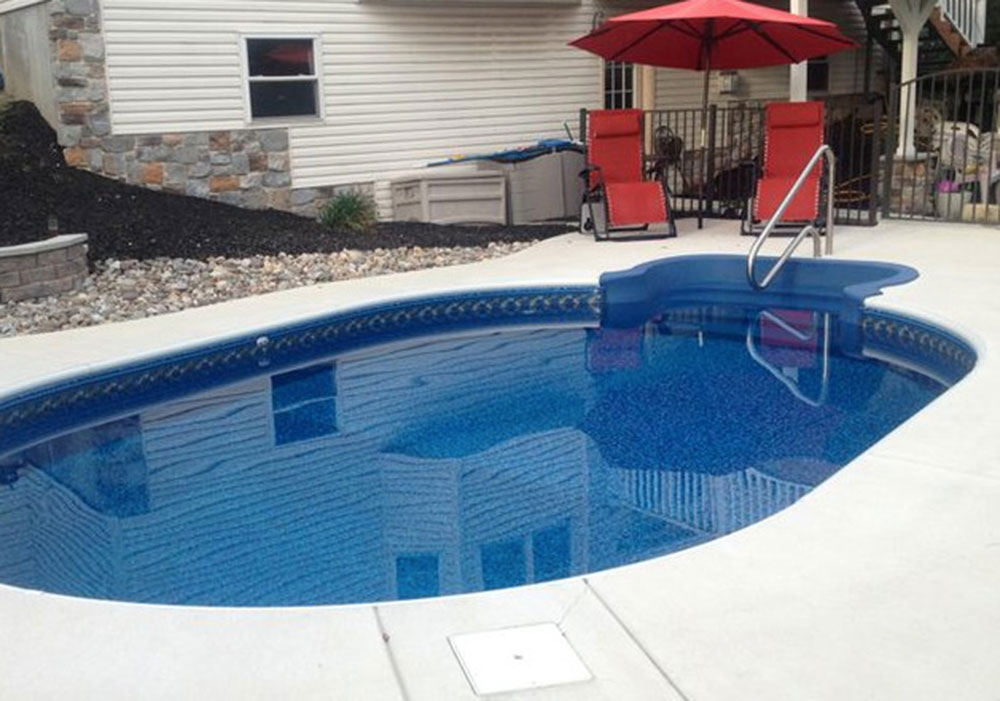
Image source: Suzanne
When it comes to swimming pool maintenance you can build up a whole range of fancy materials. Heating, lighting and high tech pool covers all enable you to create a wonderful pool experience. You can go further by adding great underwater speakers so that you can add music to your garden. No matter whether you have a luxury pool with solar heating or a simple but relaxing pool, you’ll need to maintain it. The most vital aspects of your swimming pool are:
- The water.
- The wall or lining of your pool.
- Your pool’s circulation or filtration system.
- Your pool’s skimmers.
The water in your pool
A pool is made up of water. It is your pool water which is so essential to enjoying your pool. Clean, clear sparkling water is the result of careful pool care.
When you keep your pool water clean and chemically balanced, you’ll create a perfect swimming environment. Water care is a vital part of pool maintenance.
When you care for your water, you’ll protect the walls and the lining of your pool from algae or chemical build ups. This will prolong the life of your pool.
Your pool’s walls or lining
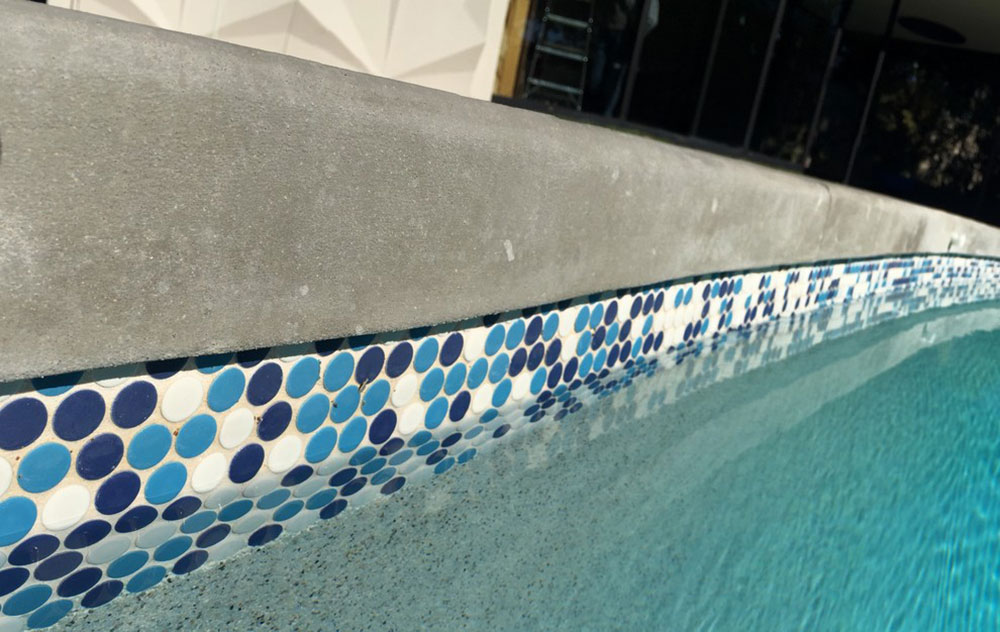 Image source: Swimming Pool Science
Image source: Swimming Pool Science
Pool care involves scrubbing or brushing down your walls. Your pool water is constantly coming into contact with the lining or walls of your pool. Brushing down your walls helps to avoid a build up of algae or debris which can contaminate the water system. It also prevents a build up of chemicals. Regular brushing will therefore prolong the life of your pool.
Your pool’s filter system
Your filtration system is at the heart of pool maintenance. It cleans and filters your water, getting rid of debris, insects, dirt, dust and bird poop. Your filtration system also helps to circulate the chemicals in your water. Without your pools filtration system your water would become a toxic and bacteria-filled mess.
Your filtration system may be made from diatomaceous earth; you may use a sand filter or a cartridge system. Pool maintenance means clearing out your filter system of debris. It also means replacing sand or paper cartridges which become clogged so that your filter works like a charm.
Pool skimmers and returns
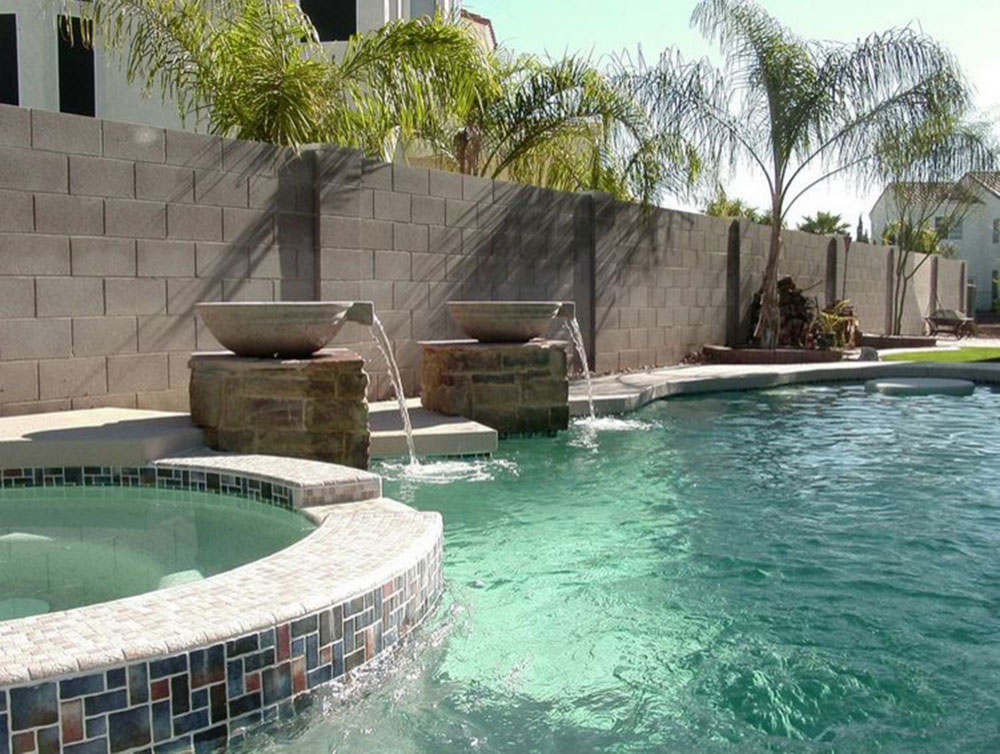 Image source: True Blue Pools
Image source: True Blue Pools
Your pool skimmer pushes your swim pool water through your filtration system, skimming off leaves, insects and other debris. The water then passes through your filter so that it can be properly cleaned and returned to your pool.
Your skimmers and returns circulate water through your pool for easy pool care. Your pool maintenance tasks will be a lot easier if your skimmers and returns are kept clean and unblocked.
No two pools are identical, and you may have leaf skimmers or an automatic pool vacuum as part of your pool maintenance. However, by keeping these four core parts of your pool clean and debris free, you will be taking charge of pool care.
Circulation and the importance of running water
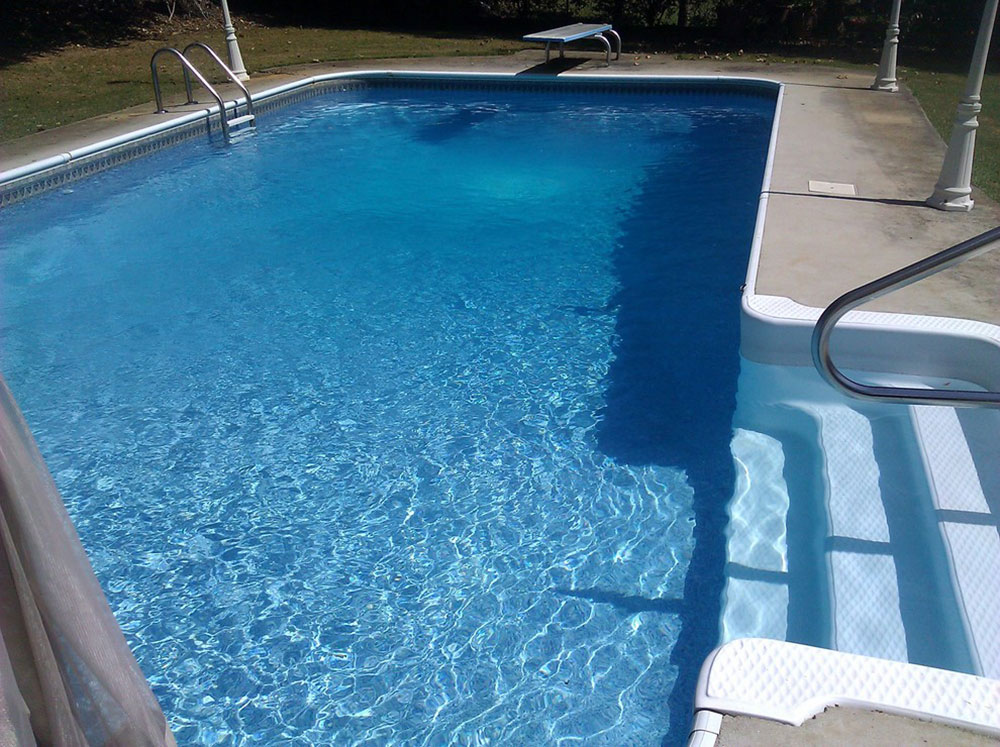 Image source: Proclean Swimming Pool Service
Image source: Proclean Swimming Pool Service
If you ever went camping or hiking as a child, you’ll probably know the importance of water safety. You will have learned that running water is usually safe, whereas stagnant water could be filled with bacteria or potential diseases. Moving water is clean, sparkling and transparent. It is also healthy for swimming.
If your pool water is cloudy, you may need to do some easy pool maintenance before you start swimming again. Restoring your chemical balance and then keeping your circulation going for 10 to 12 hours is an absolute must.
Your pool would be at its very best if you could keep your pool filtration systems going all day every day. This is not possible, but 10 to 12 hours will ensure that you have clean and clear water which is free from debris.
Backwashing your filtration system is also crucial to great pool maintenance. This will help you to eliminate the build-up of waste and debris that has built up in your filtration system, removing it from your pool completely. You may use a DE filter, sand filter or cartridge filter when cleaning your pool, but the results are likely to be the same.
If you are using a sand filter, it may help you to add a cup full of D.E. to your filter. The fine particles will help you to clear debris, keeping your pool clean and clear.
Cleaning your pool
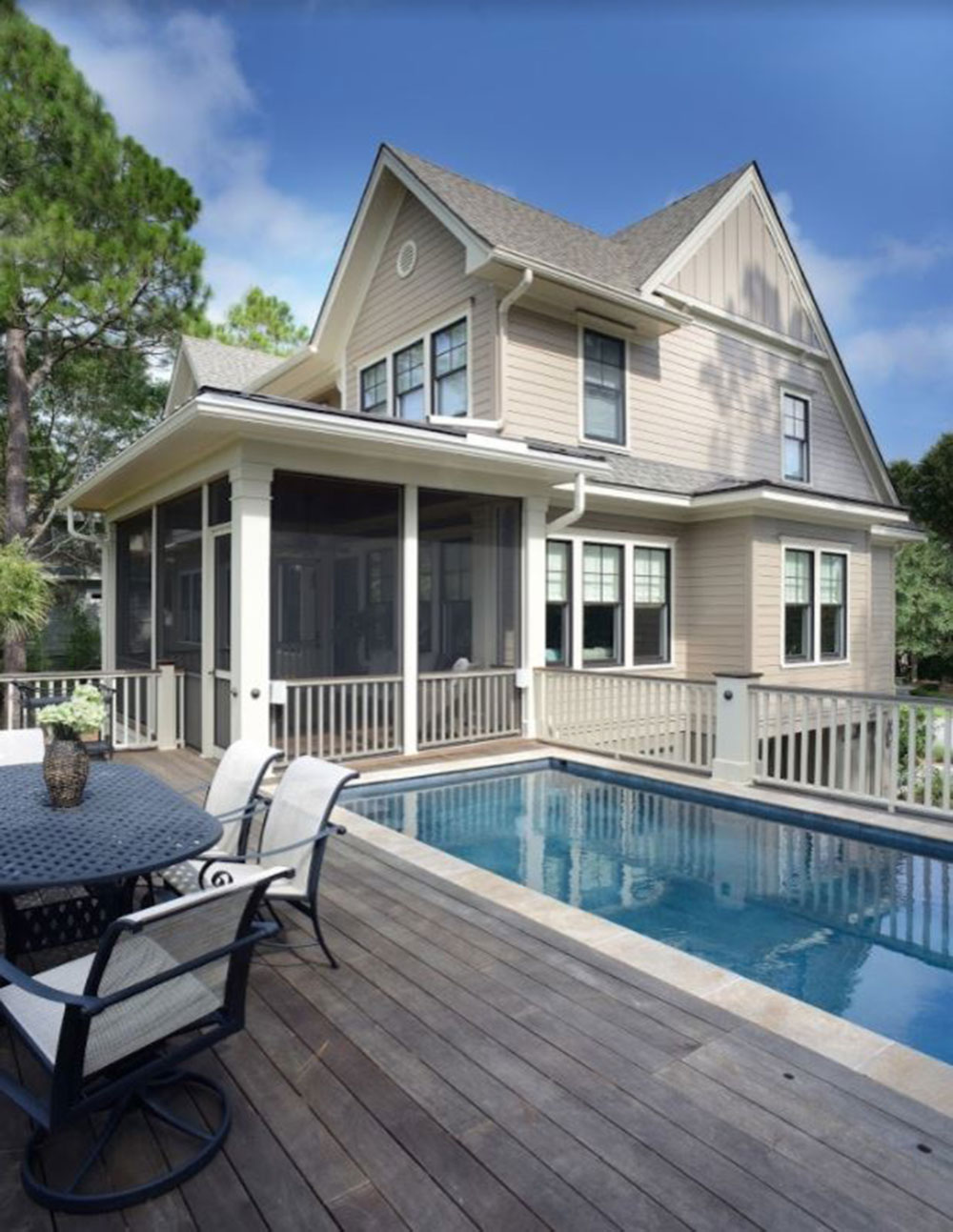 Image source: Above & Beyond Property Services
Image source: Above & Beyond Property Services
Your pool’s circulation system is the most important element in cleaning and pool maintenance. However, you can still assist with pool care by scrubbing your pool walls with a pool brush, or using a net skimmer to clean up debris.
Here are some handy items:
- A pool brush
- A net skimmer
- A pool vacuum
When you use your pool, you’ll attract all types of particles or debris into the water. Sun tan lotion, dust or dirt and body oils all accumulate in the water. In addition, nature will send leaves, insects, sand, bird poop and feathers into the water. When you add the potential for bacteria and cleaning out the debris in your pool becomes an important part of maintaining a pool.
You’ll need to skim, vacuum and brush your pool at least once a week to keep your walls or pool lining clean and debris free. If you need to, you can scrub the tiles around your pool with a baking soda paste. This non – abrasive paste will not damage your tiles or pool lining.
If you use an automatic pool vacuum cleaner you’ll make your pool cleaning schedule so much easier. This doesn’t mean you’ll have to give up brushing or skimming your pool, but you’ll keep your pool water clean with far less effort. This will give you spend more time enjoying your pool rather than simply cleaning it.
You can use a few other pool hacks to save on cleaning time. If you toss a tennis ball into your skimmer basket or even onto the surface of your pool after you’ve been swimming, they will absorb sun tan oils or body oil particles, keeping your pool far cleaner.
By wrapping your skimmer basket in pantyhose, you’ll create a fine filtration system which will absorb catch micro particles, keeping your pool clean and clear for longer. No risk of cloudy water with this easy pool maintenance trick. For a sparkling pool, replace your tennis balls or pantyhose when they show signs of wear and tear.
Tip: If you have a drainage jet at the bottom of your pool to suck debris into your filtration system, turn it on to suck in the debris you have loosened while brushing down your pool. If you don’t have a drainage jet, you can still clear your water effectively with a manual vacuum cleaner. Attach your vacuum to your pool’s filter system, turn it upside down and allow the suction to send debris towards the surface and into your pool’s filtration system.
You can use flocculent to attract particles and send them to the bottom of the pool where they can be easily vacuumed up. This while keeping your pool water clean and forms an important part of debris removal. However, this will only cure large amounts of debris rather than prevent them.
If you have a pool filter basket placed near your pump, clean it out at least once a week. Getting rid of leaves, hair and large debris will keep your pool filtration system clean.
Remember to clean out your skimmer basket as well. This gets rid of particles which will block your pool system, helping to keep your pool water clean. Cleaning out your filters forms an important part of your weekly pool maintenance.
Create a chemical balance
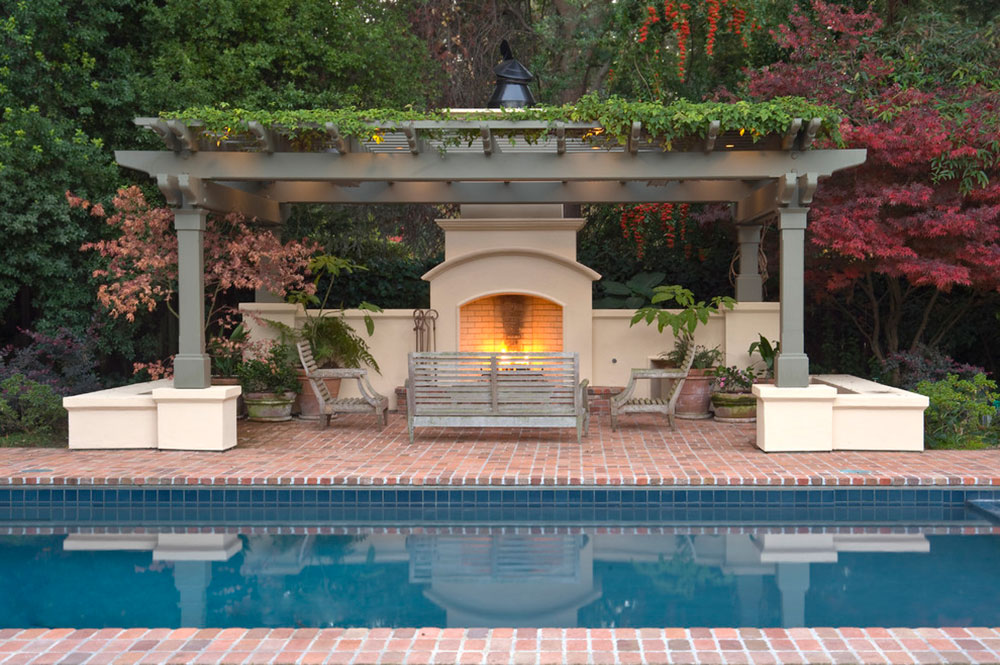 Image source: Kikuchi + Kankel Design Group
Image source: Kikuchi + Kankel Design Group
Creating a chemical balance in your water is really pool care for dummies. It may sound intricate and sophisticated to a first-time pool owner, but once you have the hang of it; it is an easy part of pool maintenance.
To ensure that your pool has the correct chemical balance, you will need a water testing kit. Testing your pool water will enable you to test your pH balance, chlorine levels, and alkalinity. When you know what is missing (or included) in your pool you’ll know what steps you need to take to ensure your water remains clean and hygienic. Once you understand your chemical balance you’ll know how to maintain a pool.
Three important elements in creating a chemical balance are:
PH levels: pH levels measure how acidic or alkaline your pool is. Ideal levels should be between 7.2 and 7.6, with 7.4 considered to be optimal. Your pH level will then be the same as human tears, making the water safe for the eyes while swimming.
Alkalinity: the alkalinity in your water helps to keep your pH levels consistent. This means that your chemical cleaners will work well. Your pool’s alkalinity should be between 100 and 150 parts per million (ppm).
Sanitizer levels: if you are using a chlorine pool, you will need to keep an optimal chlorine balance in order to ensure that your pool stays clean and hygienic. When chlorine levels drop, algae and bacteria may start to grow. You may also use bromine or another sanitizer. Check that your levels are accurate.
Once you know the pH balance, alkalinity and sanitizer levels for your pool it will be easy to adjust your chemical levels until you reach a balance. Read the instructions before you add chemicals. You need to know what your balance should be both for the maintenance of your pool and the people who will use it.
DIY Pool Care
 Image source: Amanda Patton Landscape & Garden Design
Image source: Amanda Patton Landscape & Garden Design
You’ll love having a swimming pool during the summer time. The chance to take a quick dip in the sparkling water will be an absolute treat. You may even have a swimming pool service which can provide you with pool care once a month. However, if you do not, don’t fear. These quick insights will help you to manage your pool maintenance quickly and easily.
How to test your pool water
You know that you need to test your pool water in order to create a perfect balance. But how do you test your pool water and where would you buy a kit?
You can buy pool testing kits and strips from your local pool store.
Your local pool supply store will have strips which can test alkalinity, chlorine levels, pH and cyanuric acid. You won’t have to buy multiple kits for different chemical tests. One kit should be enough.
Dip your test strips into the pool
Move away from the pool skimmer and dip your strip test into the pool water. Place the strip approximately 45 cm into the water and leave there for about ten seconds.
Match your colors
Once you have your test results, match the color on your test strip to the colors on your box or bottle. Compare carefully. Don’t make assumptions based on a previous kit as different manufacturers use different color images.
Use color ranges to show you any changes to make
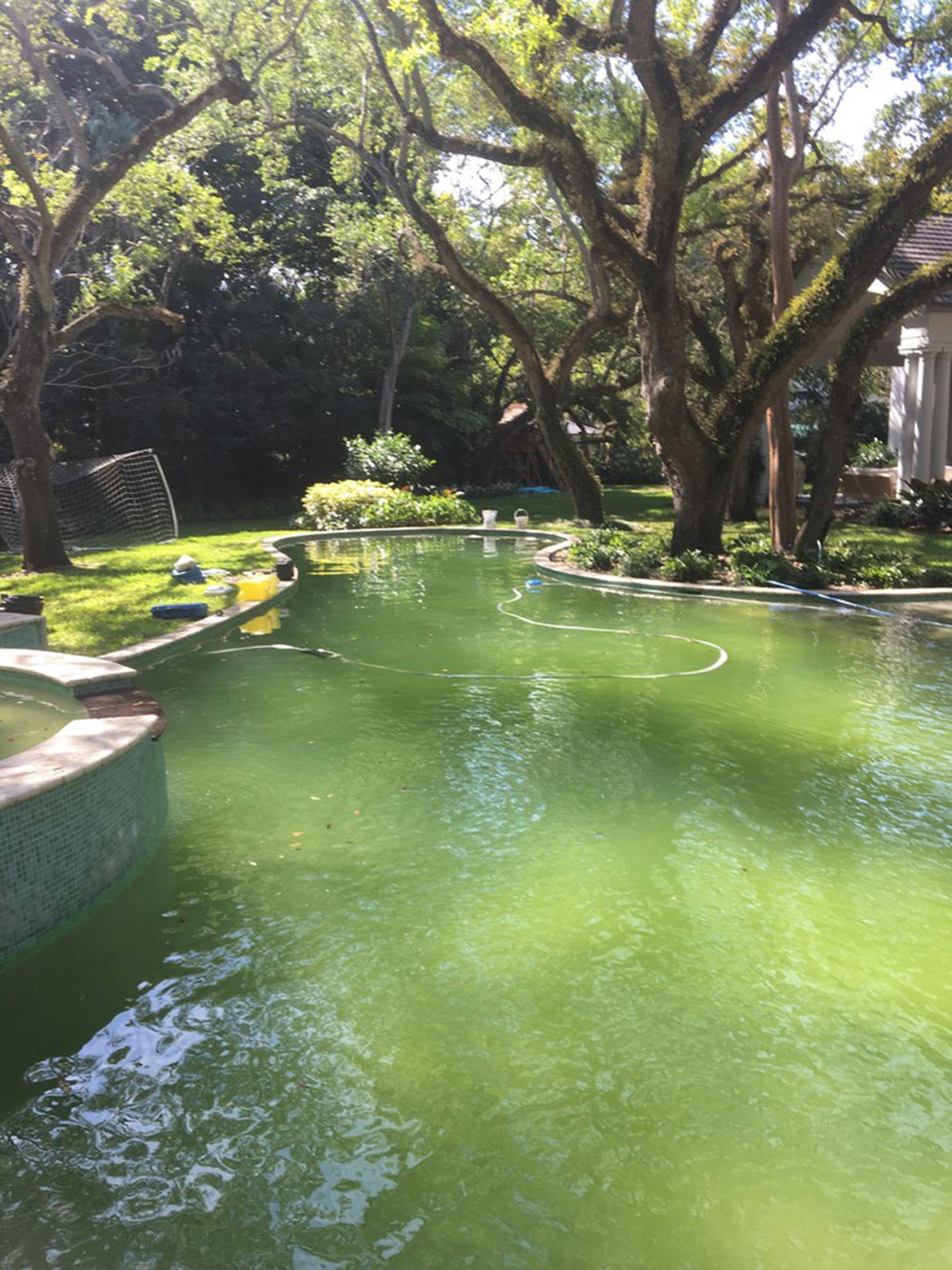 Image source: Acquality Pool service
Image source: Acquality Pool service
Once you’ve made your comparisons it is time to see if you need to make any changes. If your chemical readings don’t fall within the suggested range, you will need to restore balances as part of your pool maintenance.
Easy pool chemical additions – working towards balance
In order to restore chemical balance, you’ll need to have the right chemicals ready and available. Basic pool chemicals should always be on hand as they will form a part of your pool maintenance rituals.
Chemicals you will need:
- Chlorine
- Shock treatments
- Algaecide
Apply chlorine to your pool
You’ll need to apply chlorine to your pool on a regular basis to ensure you don’t end up with low chlorine levels. Swim pool water will need to have the right levels of chlorine in order to remain clear. Chlorine keeps bacteria at bay and will stop algae from developing.
Shock your pool
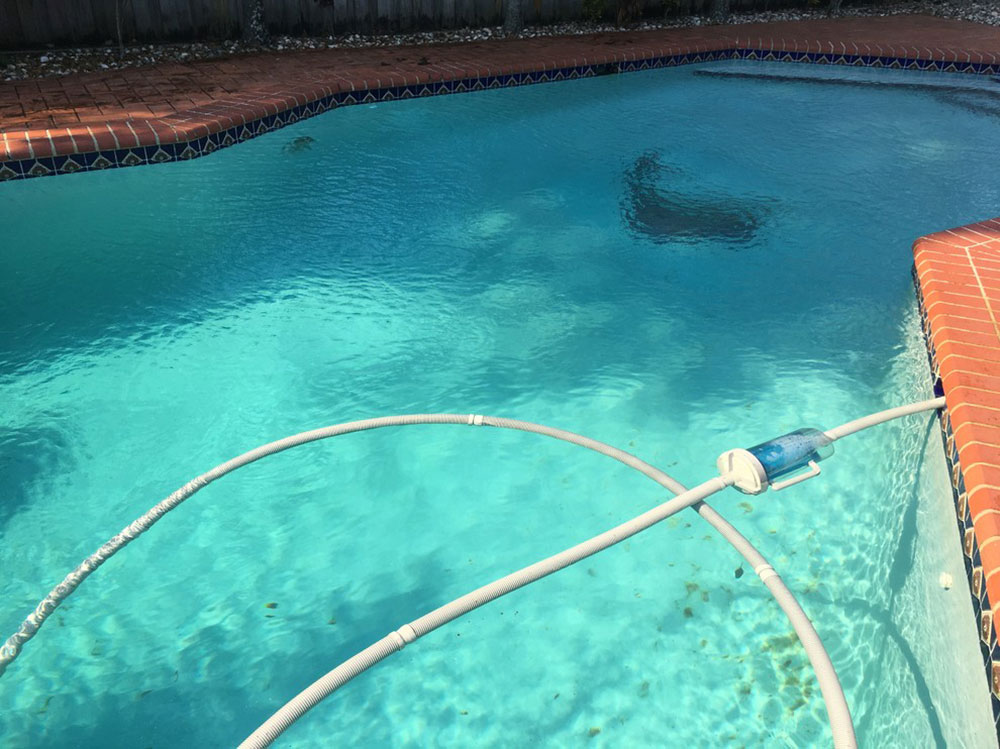 Image source: Acquality Pool service
Image source: Acquality Pool service
Shocking your pool will give you clear water that is easy on the eyes. It will also keep your pool hygienic and get rid of chlorine smells. Pool shocking is an important way to keep pool water clean.
Here are some shock products available to you:
Basic shock products
Basic shock products are great for getting rid of debris such as sun tan lotions or other body products. They will also keep chlorine levels stable and kill bacteria in the water.
Multifunctional shock products
These products are a quick way to make a pool swim safe. You can use these products to kill algae, clear up cloudy water, balance pH and eliminate bacteria. You will be able to get back into the water only 15 minutes after using these products, which make them a great pool help.
Maintaining your filtration system
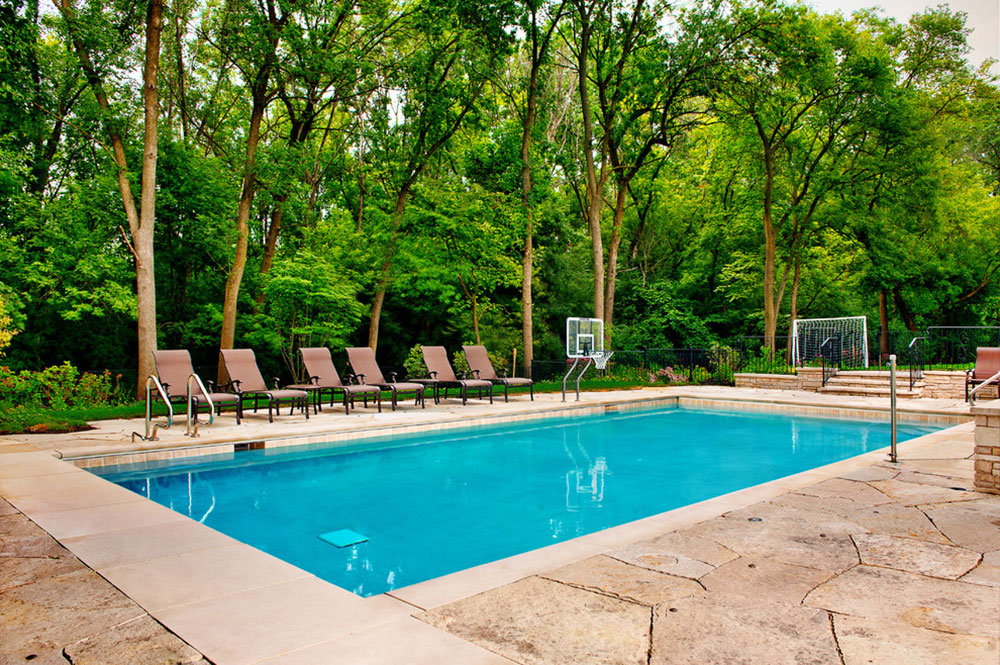 Image source: Platinum Poolcare
Image source: Platinum Poolcare
Pool maintenance always requires a great filtration system. Here are some ways to ensure that your filtration system runs at optimal level, resulting in easy pool care.
Clean your pool daily
Manually brush down your pool steps as well as the sides of your pool. Use a net to catch debris. This is part of pool care 101 and will keep your filtration system from becoming blocked. It will also give you clear pool water.
Keep your pool’s water between ½ and 1/3 of the opening of the pool skimmer.
Your pool skimmer pulls leaves and other debris into your filter system. It works best when it is between half and a third full. When your water levels are too low or too high, this can have negative results for your pool filter system.
When your water level is too high it will move slowly through your filter system. Your swimming pool skimmer may have difficulty catching the leaves or debris which has fallen into your pool. As a result it may not be caught by your pool leaf skimmer and may remain in your pool water or sink to the bottom of your pool.
When your water level is very low your skimmer may not suck in enough water. Air may find its way into your pool’s circulation system. You then run the risk of burning out your pool pump, closing down your pool’s circulation system and impacting on your pool maintenance routine.
Increase your water level before backwashing or vacuuming your pool
 Image source: Platinum Poolcare
Image source: Platinum Poolcare
When you backwash or vacuum your pool, you will be reducing your water levels. Place your hosepipe into your pool before backwashing or vacuuming. This will give your swim pool water a chance to fill up again, protecting your pool’s circulation system.
Get to know the different filtration systems available
Sand filters: These filters are often used for large pools which are used frequently. Sand traps the debris which makes its way into your pool, moving it out of the water. The sand is stored in a metal, fibreglass or concrete box. When you keep pool water clean using a sand filter you’ll need to replace your sand every five years.
Cartridge filters: Often used in small to medium pools, a cartridge filter has a membrane which catches dust and debris from your pool water. A cartridge filter will need to be cleaned regularly in order to remove debris and often have a gauge to let you know when they need cleaning. They make excellent pool filters as they have a very fine filter system which enables them to catch small particles. However, are not suitable for large pool maintenance as they will quickly become clogged up. For excellent pool care, you will need to replace your cartridge filter every 3 to 5 years.
Diatomaceous earth filters: Used in small to medium pools, a diatomaceous earth filter is placed directly into the pool skimmer. Small fragments collect dust and debris from your pool keeping pool water clean. For great swimming pool care, backwash your pool filter once or twice a year to create a pool with sparkling water.
Remember to maintain your filters
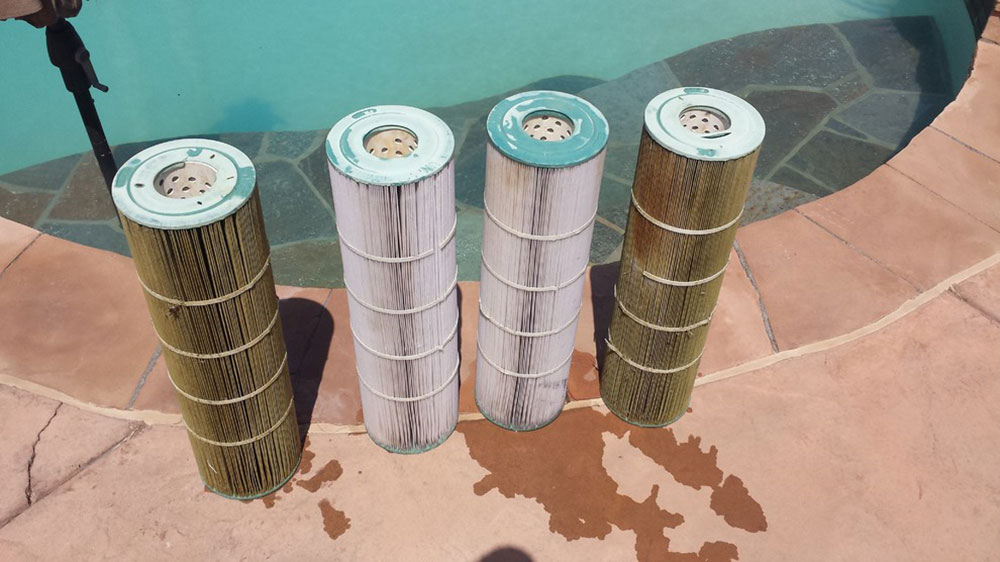 Image source: MurrElls Services
Image source: MurrElls Services
If you run your own pool maintenance schedule, remember to clean and maintain your filters on a regular basis. A pool filter blocked with dirt or debris will be inefficient and you’ll end up with cloudy or bacteria filled swimming pool water. Filter maintenance is important when taking care of a pool.
Create a maintenance schedule
When maintaining a swimming pool, your to-do list may seem large at first. However, when you get into the rhythm of it, pool maintenance becomes easy. Creating a schedule will help you to remember what you need to do, from weekly pool services for chemical balance to using a swimming pool leaf catcher after a storm.
Once your pool maintenance schedule becomes rhythmic, you’ll know what to do and when to do it. You’ll also be able to plan for future maintenance such as replacing a filter or creating a homemade pool cover for the winter season.
Stick to a simple routine
 Image source: Supreme Pools
Image source: Supreme Pools
When your routine is simple and predictable you’ll know what to do to keep your pool clean. Stick your pool maintenance schedule on your fridge door or place it on a whiteboard.
If other family members are able to complete certain tasks, share the workload. Remember to prepare for non-routine tasks such as adding extra chlorine to your pool before a storm, or adding to your water level before a backwash.
Extra Tips
If you’re a first time pool owner you may not know that certain tasks can make pool maintenance easier by preventing cloudy water. Here are some tips.
Scoop leaves out of the pool
Leaves left too long in your pool will sink to the bottom. The best way to get leaves out of your pool is to scoop them from the surface of the water using a pool net for easy pool care.
Brush the sides of your pool
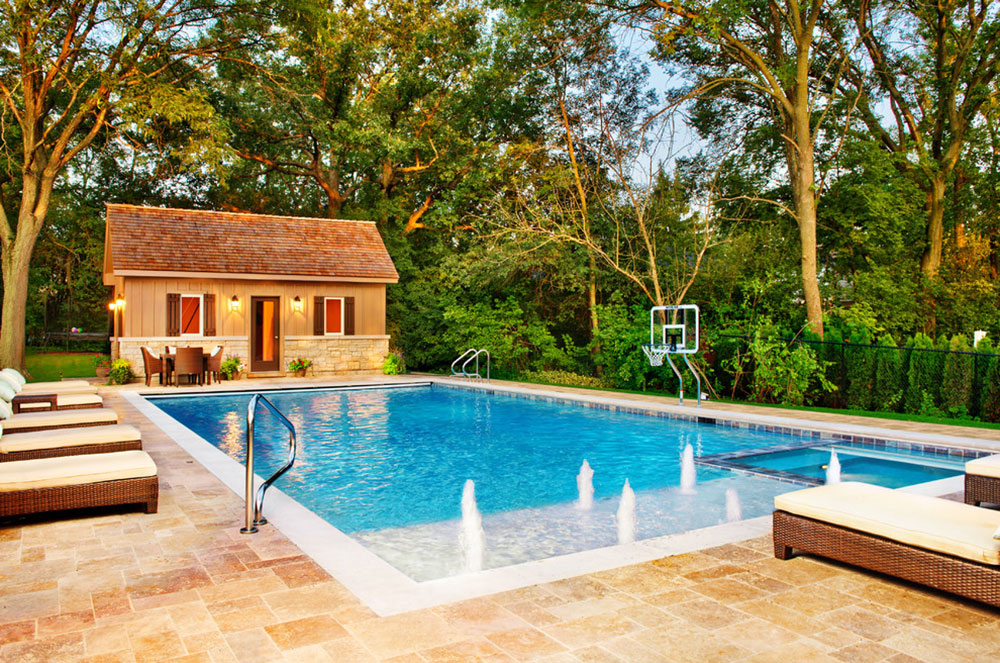 Image source: Platinum Poolcare
Image source: Platinum Poolcare
Regular brushing will keep your pool water clean as it sends dirt and debris into your pool filter system. It will also prevent algae growth. Regular brushing is an important part of pool care as it will prevent chemicals from building up on your pool interior. This will prolong the life of your pool walls.
For saltwater pools
If you create a pool which uses salt water, turn your filter off when it rains. Salt water is denser than rainwater, so when it rains, the rainwater will sit on top of your saltwater. When rainwater is pulled through the filter system it will dilute the salt in your pool water and you will need to restore your chemical balance.
Clean your tiles regularly
The tiles around your pool will often gather dust or chemicals, leaving marks. Brush them down regularly to keep your pool clean. If you have chemical build up remember to check your pH balance too.
Store your chemicals safely
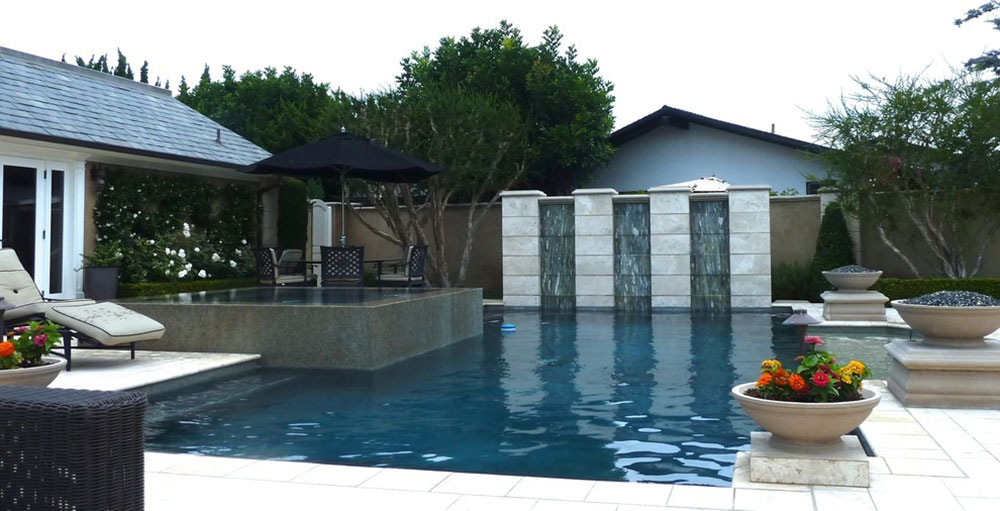 Image source: Absolute Pool Care
Image source: Absolute Pool Care
Pool chemicals such as chlorine and acid should be stored separately. Remember to store all pool chemicals in a cool dry place and away from direct sunlight.
A pool with an ozone system will not need to be shocked regularly
You won’t need to shock your pool regularly if you have an ozone system. Leave your pool filter running for 24 hours and this should sort out any problems within your pool. If you do need to shock your pool, use non-chlorine based shock at night time.
If you notice any cracks in your pool, fill them with silicone. This will prevent water loss.
Keep animals and plants out of your pool
Animals and plants will create a build up of nitrates in your pool, creating an algae risk. Clear up any bird droppings immediately. This will help to keep your pool water clean.
Check your pool nets or gates to ensure children remain safe
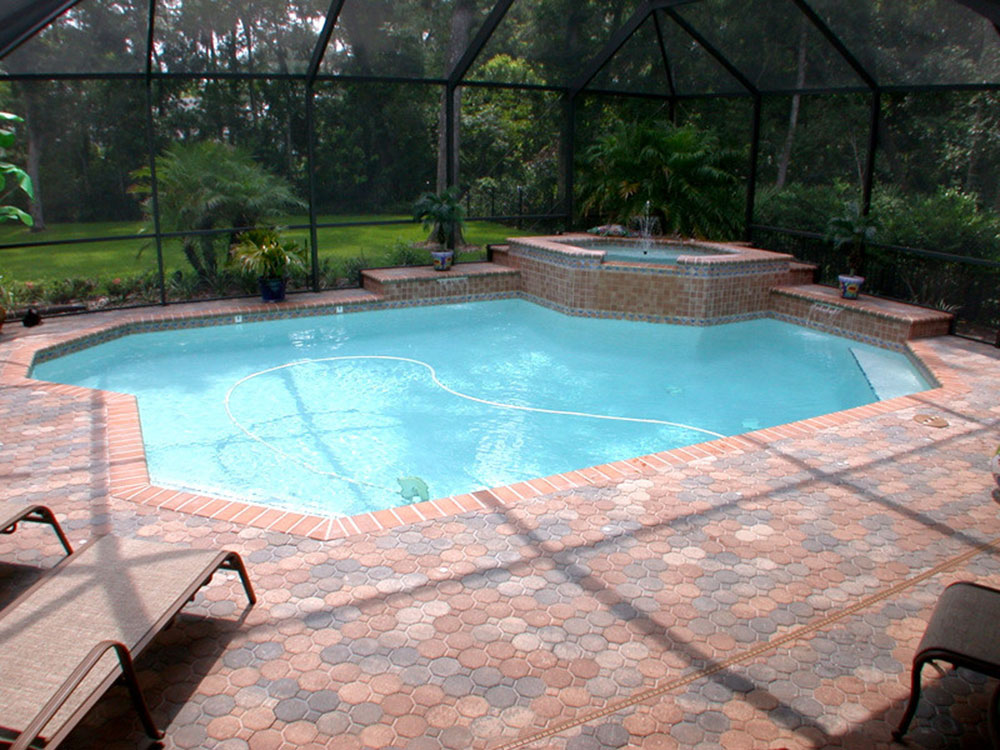 Image source: Martin Pool & Spa
Image source: Martin Pool & Spa
If you want to create a pool which is safe for small children or toddlers and you are using a safety gate or net, remember to check them on a regular basis.
Ending thoughts on pool maintenance
Although pool maintenance can seem intimidating at first it will quickly become routine. Regular pool care will allow you to enjoy days filled with fun and sparkling water. Owning a pool means great summer days which are made possible by routine care. However, pool care doesn’t have to be tedious.
As you work out the routines of pool care, you might feel pride in taking care of a pool. You’ll enjoy having clean water and the joy that comes with pool ownership.
If you enjoyed reading this article about pool maintenance, you should read these as well:
- Swimming pool leak detection: How to find a leak in a pool
- DIY pool: How to build a natural swimming pool
- Outdoor Pool Designs That You Would Wish They Were Around Your House
- Small pools: inground, fiberglass, backyard pool designs
- Pros And Cons Of Having A Swimming Pool In Your Yard
- Best 46 Indoor Swimming Pool Design Ideas For Your Home
- Outside Swimming Pool Design And Landscaping Ideas
- How much value does a pool add to a home?
